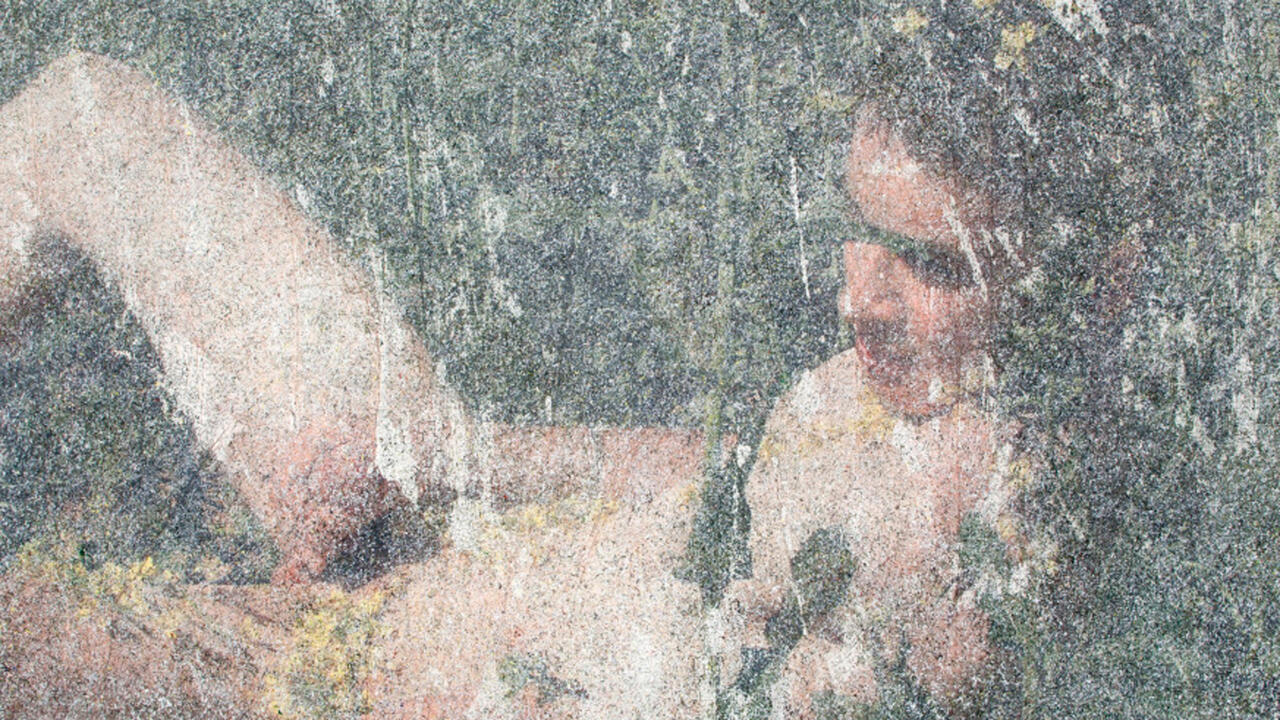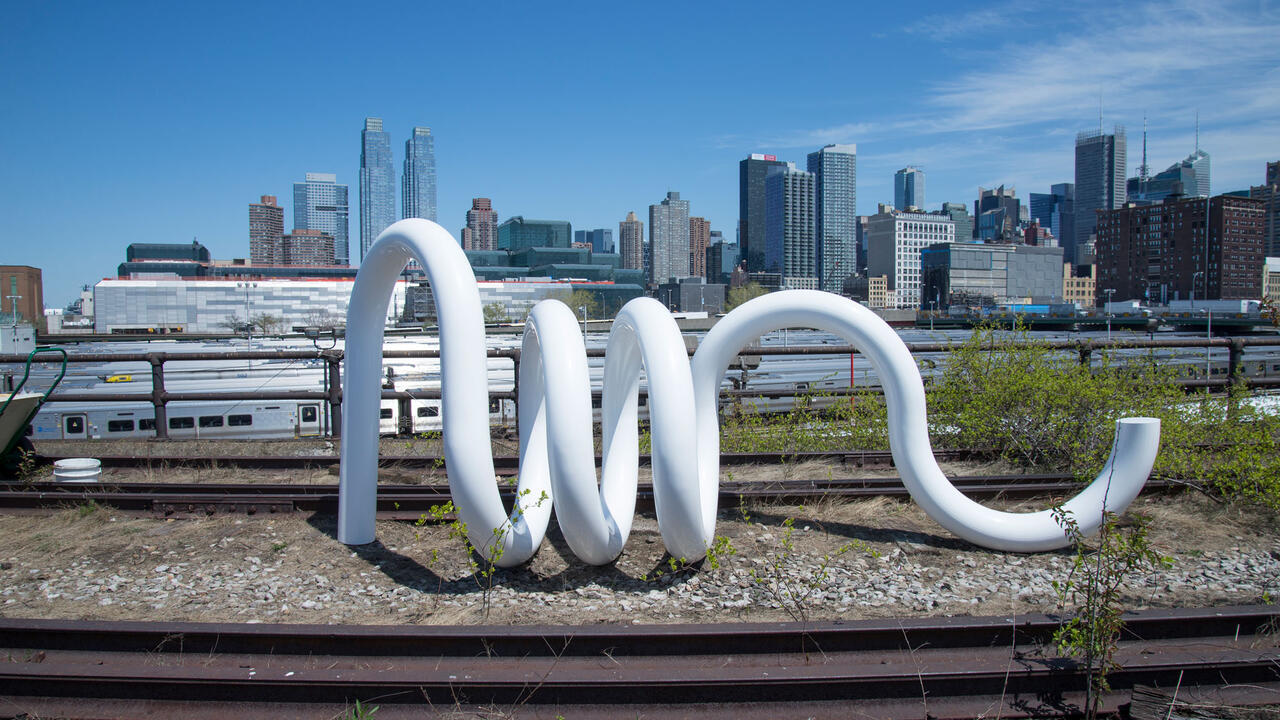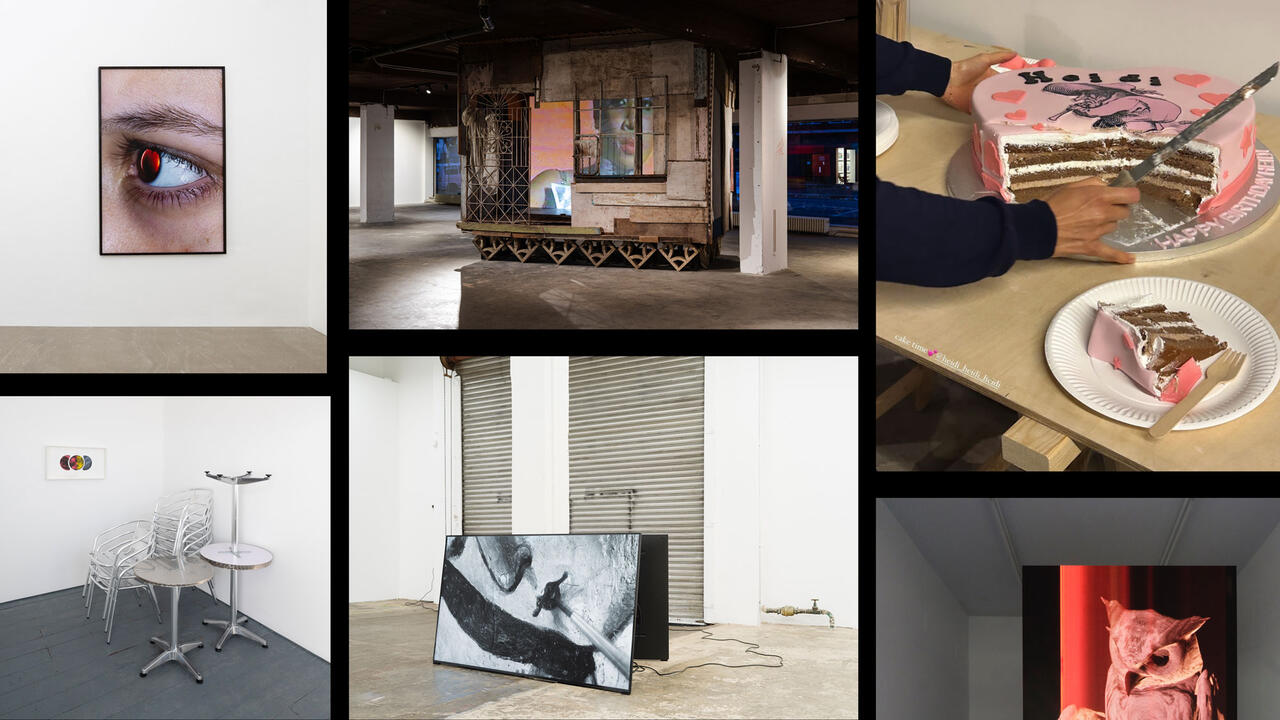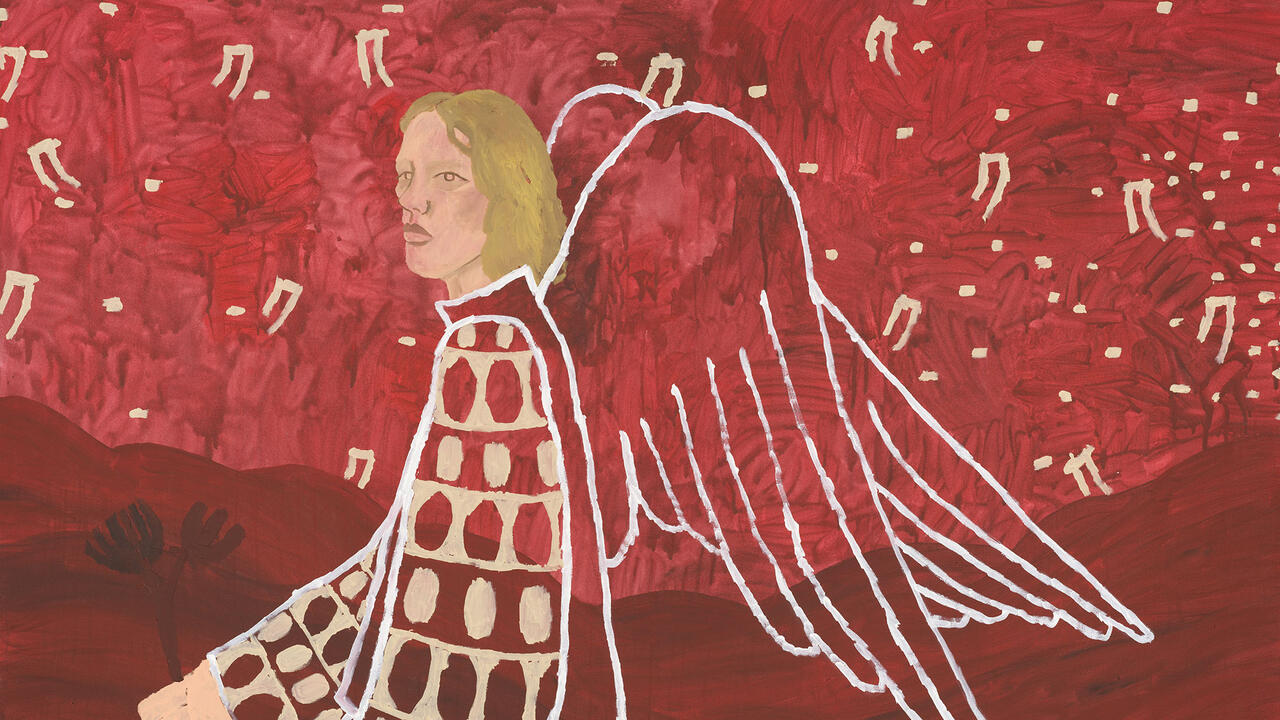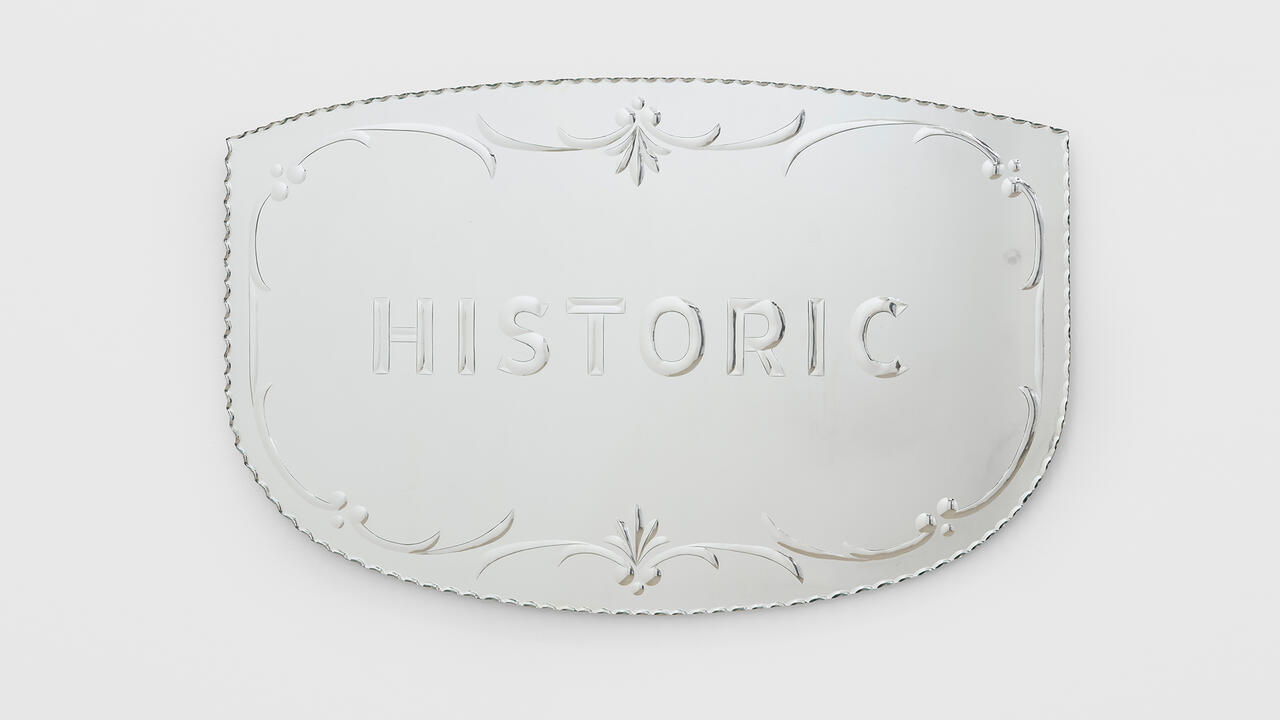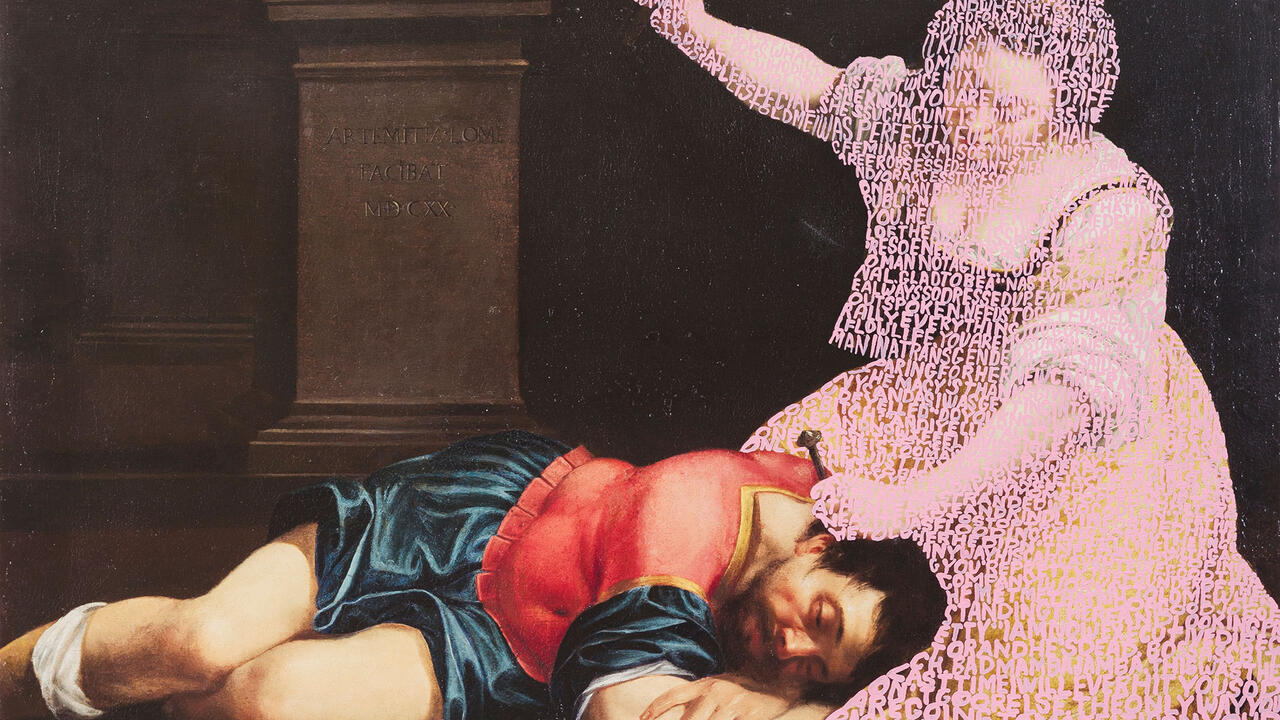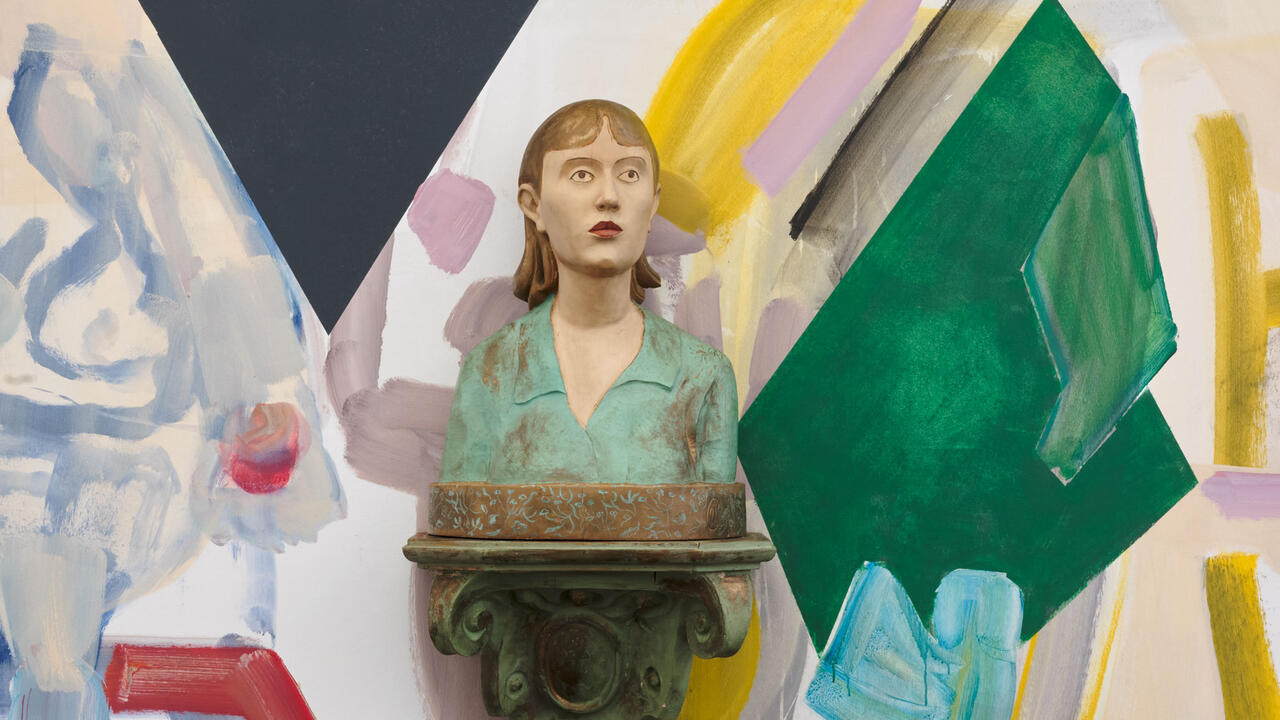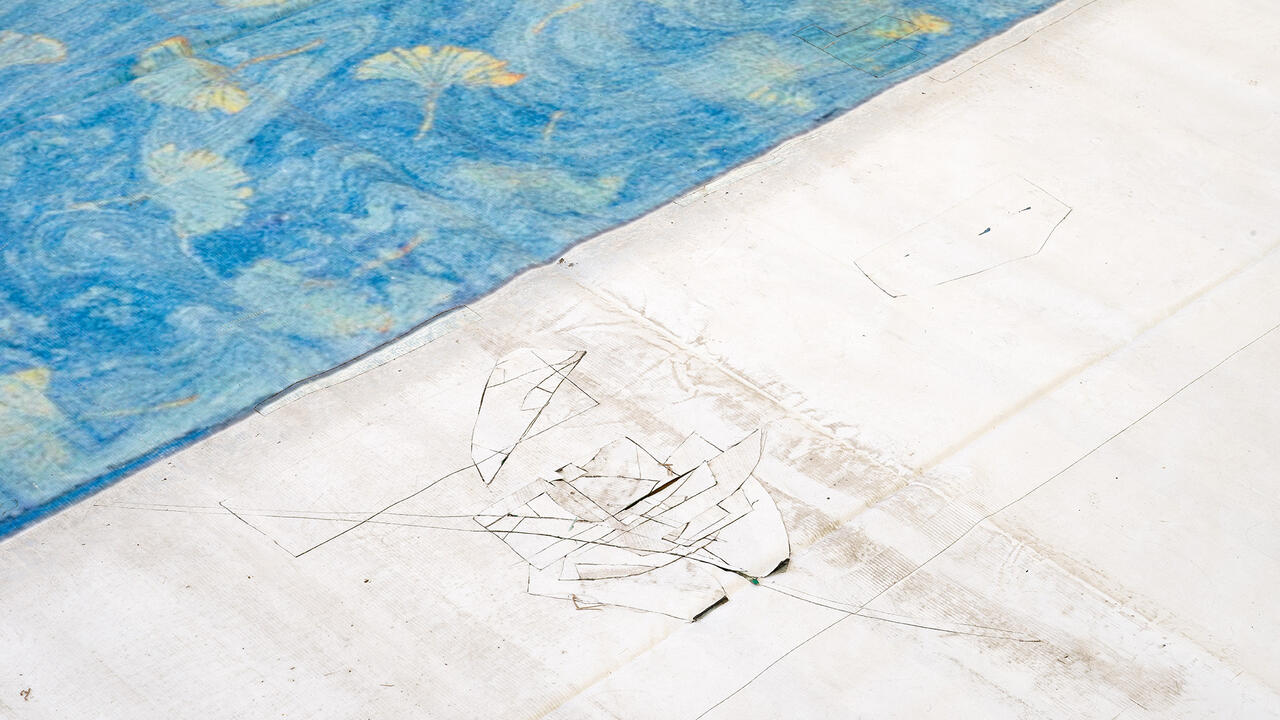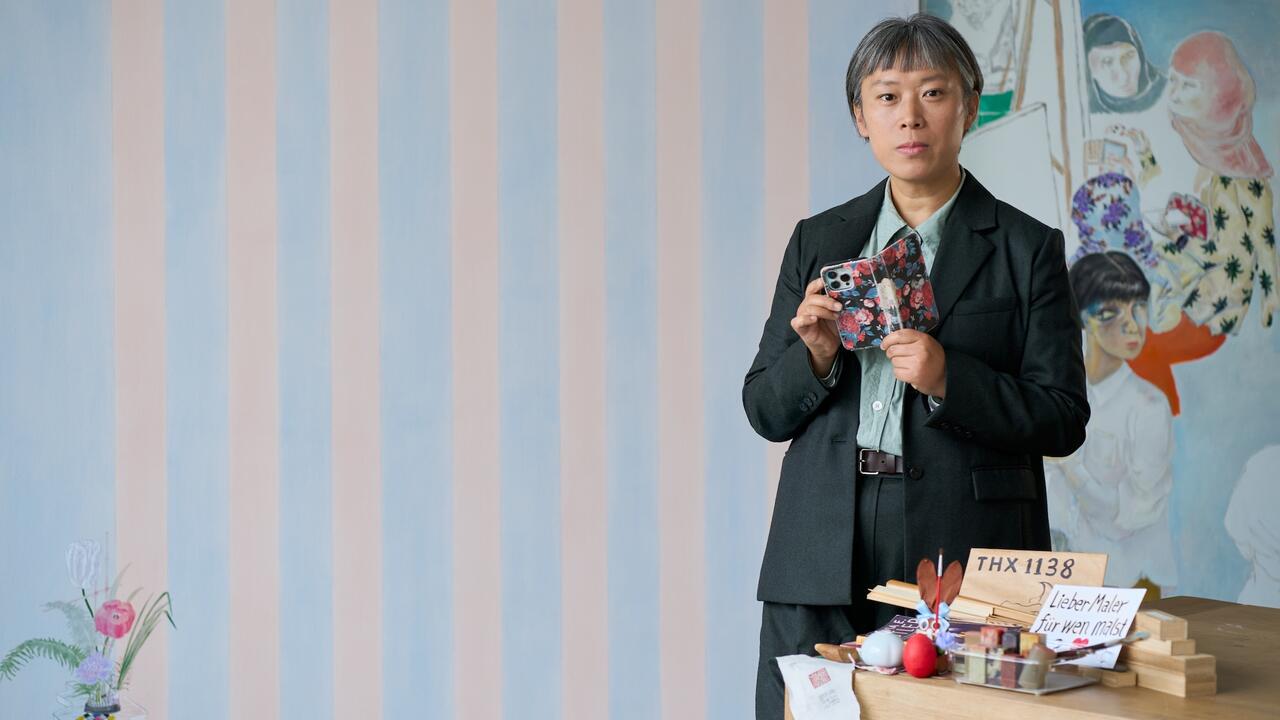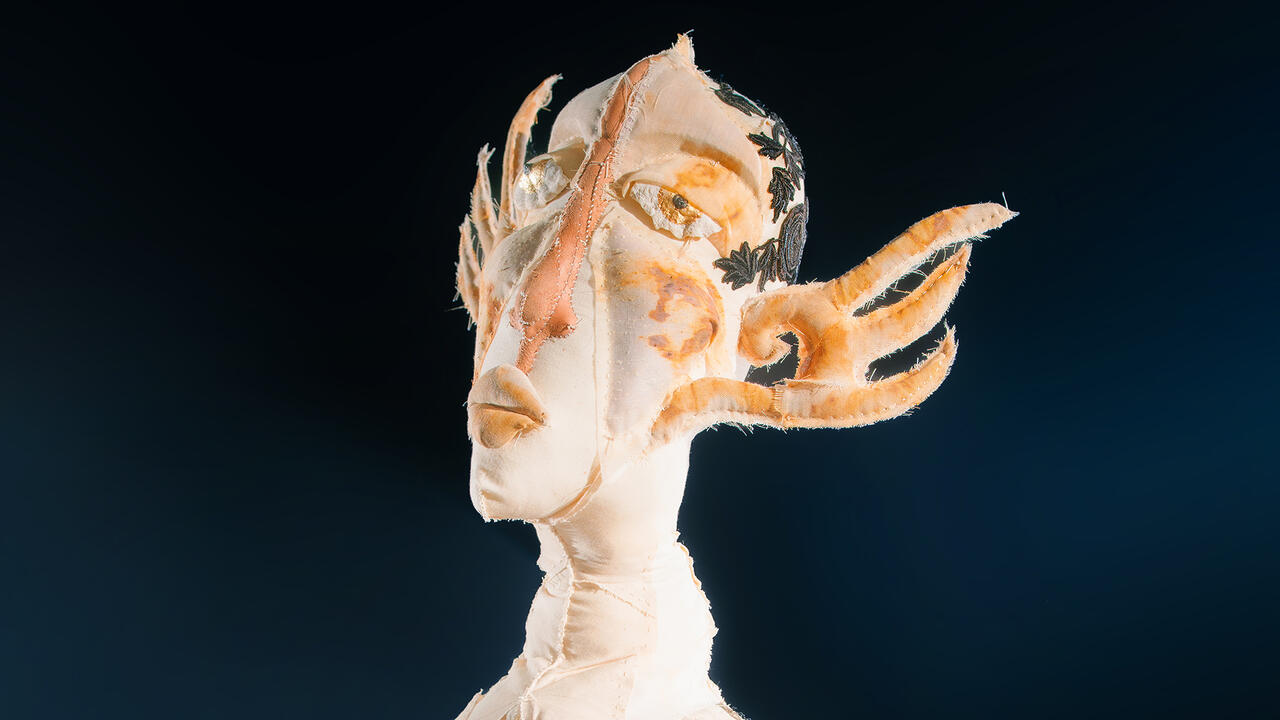In Profile: Johann König
The Berlin dealer discusses plans for his new London space, König Archive & Souvenir
The Berlin dealer discusses plans for his new London space, König Archive & Souvenir


Founded by Johann König in 2002, König Galerie has established itself as a formidable force in Berlin. The gallery has two outposts, one near the historical city centre of Potsdamer Platz and the other in St. Agnes, formerly a brutalist church in Kreuzberg. As well as a roster including internationally recognized artists varying in age and nationality – such as Katharina Grosse, Elmgreen & Dragset, Helen Marten, Julian Rosenfeldt and Camille Henrot – König also hosts events such as ‘Yoga in St. Agnes’, a free, monthly yoga class that takes place amongst the mounted artworks, and has a small fashion label, König Souvenir, that released a ‘Eunify’ sweatshirt and a Norbert Bisky-designed beach towel.
The latest endeavour from the Berlin dealer is the launch of a London space, König Archive & Souvenir, which will be located in a former 3,750 square-foot car park in Marylebone. Straying from the traditional format, König Archive & Souvenir is intended to function as a showroom as well as a cultural hub, offering books, clothing, performances, readings and other events. In addition to the new permanent space, König has also teamed up with The Vinyl Factory to present Jeremy Shaw’s video Liminals (2017, commissioned for this year’s Venice Biennale) and will launch a biannual magazine, König Magazine, during Frieze Week. I met the gallerist in Berlin to discuss his multi-layered expansion.
Emily McDermott How long have you been planning König Archive & Souvenir?
Johann König Not long at all, maybe four months. It was very quick. We wanted to be in London’s West end and looked at several [location] options. The car park came up as the best opportunity. It’s between Regent’s Park and Mayfair, but it’s still unclear exactly how it will work and function.
EM Can you tell me about the collaboration with The Vinyl Factory?
JK The Vinyl Factory is run by a friend of mine. We were talking once and he said, ‘Why don’t you have a show here?’ and that became the project with Jeremy Shaw. The Archive and Souvenir space will be more of a viewing room, like our downstairs room [in St. Agnes]. We realized that for curators, artists, writers, collectors and museum people, it’s interesting to just pop-in even if they don’t particularly like the artist exhibiting [upstairs in the main space]. It’s great to see an overview; there’s so much to discover. This is what we want to mirror in London, but in a more democratic way, with books, souvenirs, limited-editions, and the like. It will also be entirely public.

EM I’m curious as to why you chose the word ‘souvenir,’ particularly because of the kitschy association it has …
JK I didn’t want to do cheap art. I didn’t want to do prints with low prices and high numbers. So all of the products are unlimited because so many young people come here. On a Sunday, we have up to 1,000 visitors and they all want to participate somehow in this world, but they can’t afford a low-priced artwork. We wanted to include them and that’s why we came up with this brand idea. Our label is König Souvenir – we did the Brexit ‘EUnify’ hoodie, we made a towel. It was hard to find a name for it.
EM The way that you’re setting up this space feels very ‘Berlin’ to me, not very ‘London’.
JK Totally. We are a Berlin gallery. We don’t want to be a London gallery. We want to have a permanent presence in London, but my goal is not to compete with the London dealers. My family is in Berlin, my kids live here; I choose Berlin as a place to be, but I thought, ‘We profit a lot from outside visits and Berlin is still on the periphery.’ Even though we have our major shows here, it will be good to have a London shop where we can receive clients and artists, and have an active business card, mixed with all the fairs we do. It’s like a permanent art fair booth, in a way. We have a lot of Russian, Asian, Arabic clients and they don’t necessarily come to Berlin, but they come to London because it’s a business hub.

EM So why London opposed to New York, which is also a business centre?
JK In New York the political climate is even worse than Brexit. It’s also a different time zone and far away. To go from London to Berlin is easy. It’s practical.
EM What kind of programming do you plan to have?
JK A wide range. We’re going to do book launches, small presentations, anything that works in the space. We planned a show of Kiki Kogelnik prints and something with Claudia Comte – we also want to do some relevant furniture elements – but it’s not clear yet. It won’t be a traditional gallery programme; the art will rotate constantly. Once you announce that you want to do something like this, people often approach you with ideas, too.

When I grew up, a gallery was a meeting point for artists, musicians, writers, critics, everyone. Since then, that’s gotten a little lost, so we’re trying to reactive it. The space in Berlin is not limited to art either. We do fashion, music, everything. We had the cultural meeting of the Green Party here two years ago, and I was also contacted by AfD [Germany’s far-right party] this year. A neighbour called and said, ‘I heard you do events at your building. Is the 15th of May free?’ I looked and said, ‘In theory, yes, what is it about?’ It took him a while and eventually he said, ‘We’d like to do our annual [AfD] convention there. We have a lot of money.’ I said, ‘No way.’ laughs I was surprised they reached out to me. Then he said, ‘Mr. König I’m very disappointed. I thought you were a democrat and you accept free speech.’ I said, ‘I’m totally up for free speech but not in my gallery.’
König Archive & Souvenir is located at 259-269 Old Marylebone Road, London. A private view of the gallery opens Thursday 5 October at 6-9pm. Jeremy Shaw’s film Liminals (2017), presented by König Galerie and the Vinyl Factory, is on view at The Store Studios, 180 the Strand, 5 October – 10 December 2017.
Main image: Jeremy Shaw, Liminal (detail), 2017, film still. Courtesy: König Galerie, Berlin









